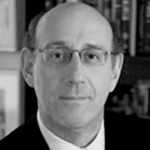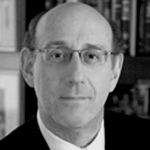 In an editorial today regarding the BP oil spill in the Gulf, the New York Times decided to take potshots at lawyers and assume that they would breach their ethics. In doing so, they elected to act like the New York Post by simply ignoring history and accepting one long running newspaper meme: No one ever lost a nickel by bashing lawyers, because when we defend ourselves we sound like, well, lawyers.
In an editorial today regarding the BP oil spill in the Gulf, the New York Times decided to take potshots at lawyers and assume that they would breach their ethics. In doing so, they elected to act like the New York Post by simply ignoring history and accepting one long running newspaper meme: No one ever lost a nickel by bashing lawyers, because when we defend ourselves we sound like, well, lawyers.
The context of today’s assult is the $20B in funds offered up by BP to settle Gulf claims, and management of the fund by Ken Feinberg. Feinberg has quite the recent portfolio, managing this fund, being the “pay czar” for companies that were bailed out by the government during the recession (from which he stepped down to become engaged here), and also managing distribution of an extraordinary $700M+ funds related to settlement of claims related to 10,000 responders to the September 11 attack.
So what did the Times do? In an editorial today it discussed the virtues of the new fund being run by Feinberg, and that this was preferable to lawsuits. The paper then went on to claim:
Given his reputation, experience, and the amount of money on the table, it is clearly in the interests of every victim of this spill to give this program a careful, unemotional look. We probably cannot expect the lawyers to act responsibly.
The Times‘ justification for this assault is the presumption that, if one is going to go through the BP fund, then one doesn’t need a lawyer. In so claiming, the Times displays either its utter ignorance of proving the elements of an economic loss, or it elects to turn a blind eye. Because all claims are not equal. Some are difficult and need experts. The shrimper with the W2 is one thing, and the new business owner who was making investments in the business at the time BP recklessly wrecked Gulf waters is something else. Proving that future loss won’t be easy.
And it isn’t just shrimpers and beach resort businesses that are hurt, because as they go down, so too do the brick layers and bread makers that depend on those people. An entire economy suffers, and proving the relationship to the oil spill won’t be simple for many. There will be a billion shades of gray for the manner in which people were affected by the spill.
Does the Times seems to suggest that Feinberg will simply pay claims without the expert analysis that’s needed in the evaluations? Will the claims simply leap off the table and magically prove themselves to Feinberg without effort?
In one sense, this is like a trial on damages only, with liability already established. But you still must prove those damages to the finder of fact. Perhaps many of the claims are simple. Most assuredly, many are not. Only a fool would walk into the forum unarmed.
The outrageousness of the Times‘ lawyer bashing is brought home with the irony of Feinberg’s involvement. For he also oversaw the September 11 Victim Compensation Fund and has been, to nearly universal acclaim, an outstanding public servant. And that 9/11 Fund saw over 1,000 lawyers working as part of Trial Lawyers Care, representing most of those directly injured in the attack and the families of those killed. Those lawyers did so on a pro bono basis. It was then, and remains today, the largest distribution of free legal services in the country, and I was a proud (albeit small) part of it. Nobody knows better than Feinberg about the extraordinary efforts put forth by the legal profession.
And yet, the Times merely assumes that, despite history to the contrary, lawyers will act unethically by giving advice that is contrary to the interests of their clients. I expect such crap from the Post, not the Times. Perhaps the usual editorial writers were away this week on vacation, and they left the interns in charge. For the piece surely wasn’t written by anyone with a lick of common sense.

